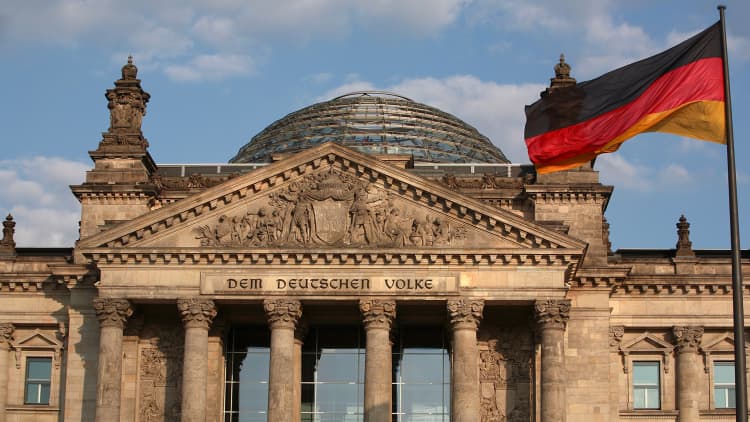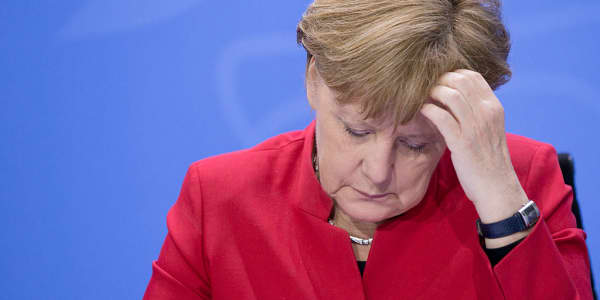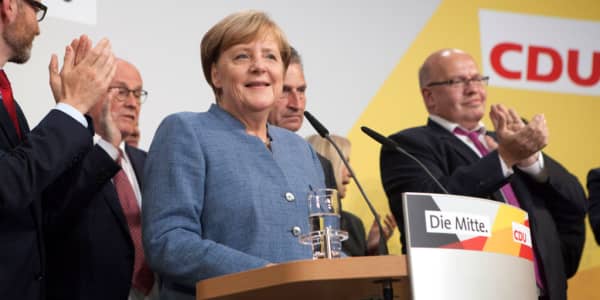
Germany has an election process so complex that some Germans don't understand it.
Every four years, voters elect members of the Bundestag, the legislative branch of the German government based in Berlin. This year's parliamentary elections are set to take place Sept. 24 and will ultimately determine the country's next chancellor.
What exactly are Germans voting for?
Germans will cast two votes: one for a candidate in their constituency and one for a political party. The process is called a personalized proportional representation system. Simply put, Germans vote to decide how the 598 base seats in the Bundestag will be divided among members of Germany's various political parties.
"The Germans are all about proportion," said Jackson Janes, president of the American Institute for Contemporary German Studies at Johns Hopkins University. "The two votes boil down to what's their favorite guy who represents them in their districts and what's their favorite team that will represent them in the Bundestag."
The first vote, on the left side of the ballot, is a direct vote for a member of parliament in that constituency, similar to Americans voting for a congressional reprentative in their district. There are 299 constituencies in Germany, so direct votes make up roughly half of the seats in the Bundestag.
The second vote, on the right side of the ballot, is for a political party. Parties in Germany's 16 states put together lists of candidates; the results from the second votes determine which candidates make it off the lists to the remaining 299 seats in parliament. Parties need to receive at least 5 percent of the second votes in a state to qualify for a seat.
How are seats calculated in the Bundestag?
The system starts to get complicated when Germans split their votes, meaning they vote for a candidate from one party in the first vote and for a different political party in their second vote. That can throw off the balance of seats in parliament so that one party is more strongly represented than they should be based on the results of the proportionate second votes.
So Germans created "overhang" and "balance seats." Those are extra seats in the Bundestag that ensure every candidate who was directly elected gets a seat while political parties are still proportionally represented based on the number of votes they received. A German state's population is taken into consideration when votes are converted into seats.
After Germany's 2013 parliamentary elections, there were 631 seats in the Bundestag, including 33 overhang and balance seats.
If Germans don't vote for the chancellor, who does?
The newly-elected Bundestag votes for Germany's chancellor. A chancellor needs to receive an absolute majority, more than half, of the votes in parliament to be elected.
That is where coalitions come into play. Because there are several political parties represented in the Bundestag, it's unusual for a chancellor to receive an absolute majority of votes from only his or her party. To secure more than half of the votes, a larger party may team up with smaller parties to form a coalition government.
"In the case where the party that gets the most votes can't work with the smaller kingmaker party, sometimes you also have a coalition between the two major parties," said Sudha David-Wilp, a senior transatlantic fellow at the German Marshall Fund.
In the 2013 elections, Angela Merkel's Christian Democratic Union (CDU) and its sister party Christian Social Union (CSU) teamed up with the Social Democratic Party (SPD) to form a grand coalition. Once a coalition is formed, members of the Bundestag vote to elect the chancellor.
Why is the system so complicated?
Many Germans saw the failure of the pre-World War II Weimar Republic as the failure of the country's fragmented parliamentary system.
After World War II, the Federal Republic of Germany transferred power from the President toward the Bundestag and encouraged political majorities to pass legislation. Germany's current system emphasizes a strong party discipline between the executive and legislative branches, according to Josef Braml of the German Council on Foreign Relations.
"Important functions are done by political parties," Braml said. "They feel the pulls of the electorate, and they transform it into policy proposal."
The 5 percent vote threshold for political parties also makes it harder for extremist groups to get in power, Janes posited.
"I think in general it's a system that's been stable as a rock for the last 70 years," he said.





